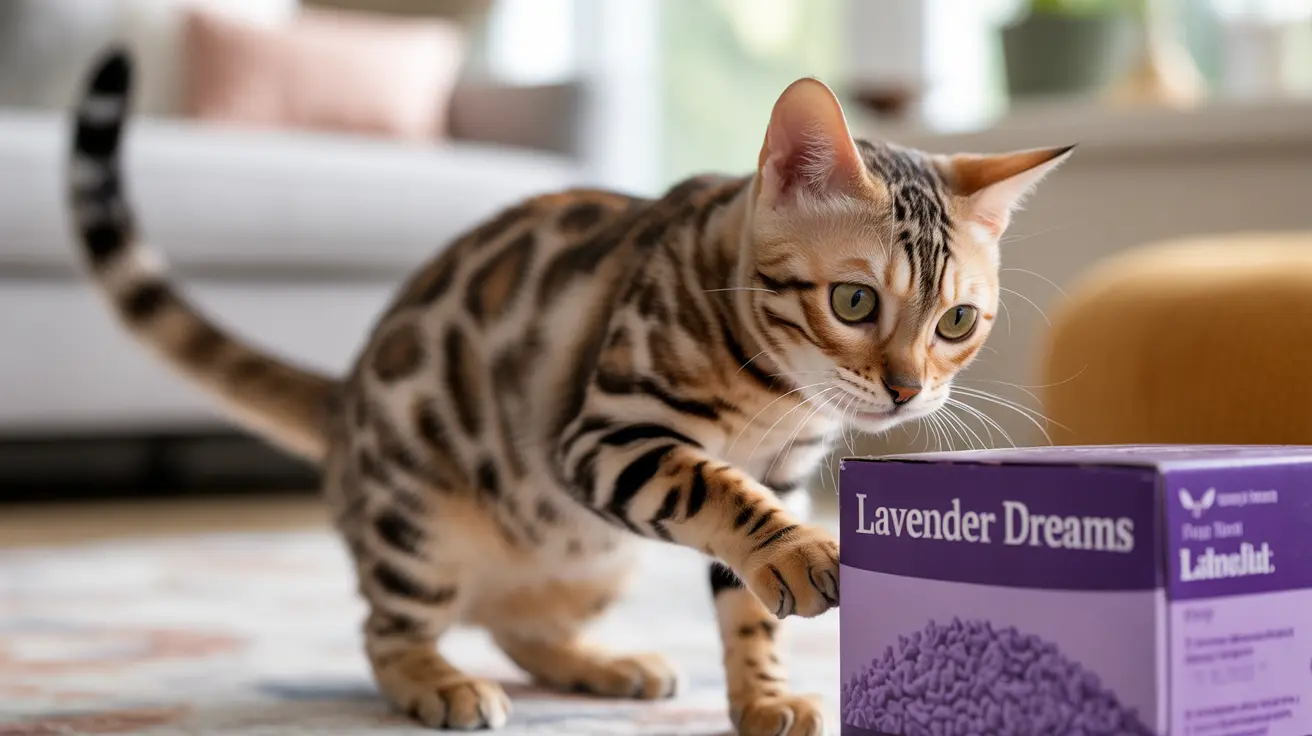If you're a cat owner concerned about litter box odors, you've likely considered using scented cat litter. While these products promise a fresher-smelling home, mounting evidence suggests that scented litter may pose significant health risks to our feline companions. This comprehensive guide explores the potential dangers of scented cat litter and helps you make an informed decision about your pet's litter box needs.
Understanding Scented Cat Litter and Its Risks
Scented cat litter contains artificial fragrances and chemicals designed to mask the smell of waste. While this might seem beneficial for humans, cats have extremely sensitive respiratory systems and a sense of smell 14 times stronger than ours. These added fragrances can overwhelm their delicate sensory systems and potentially lead to various health issues.
Respiratory Health Concerns
One of the most significant risks of scented cat litter is its impact on respiratory health. The combination of artificial fragrances and fine dust particles can irritate your cat's airways, potentially leading to:
- Coughing and sneezing
- Wheezing
- Difficulty breathing
- Aggravation of existing asthma or bronchitis
- Chronic respiratory inflammation
Allergic Reactions and Skin Sensitivities
Many cats develop adverse reactions to the chemicals in scented litter, including:
- Skin irritation and rashes
- Itching and excessive grooming
- Paw pad inflammation
- General discomfort during litter box use
Impact on Cat Behavior and Stress
The strong scents in flavored litter can significantly affect your cat's behavior and stress levels. Cats rely heavily on their sense of smell for security and territory marking. When artificial fragrances interfere with these natural instincts, it can lead to:
- Litter box avoidance
- Inappropriate elimination around the house
- Increased anxiety and stress
- Development of urinary tract issues
Safe Alternatives to Scented Litter
Fortunately, there are several effective alternatives to scented cat litter that prioritize both odor control and your cat's health:
- Unscented clumping clay litter
- Natural pine pellets
- Recycled paper litter
- Wheat-based litter
- Activated charcoal-enhanced unscented options
Tips for Natural Odor Control
Instead of relying on artificial fragrances, consider these safer methods for managing litter box odors:
- Scoop the litter box at least twice daily
- Perform complete litter changes weekly
- Use baking soda as a natural deodorizer
- Ensure proper ventilation in the litter box area
- Consider an air purifier nearby
Frequently Asked Questions
Is scented cat litter harmful to my cat's respiratory health?
Yes, scented cat litter can be harmful to your cat's respiratory health. The artificial fragrances and dust particles can irritate their airways, potentially causing or exacerbating respiratory issues like asthma, coughing, and breathing difficulties.
Can scented litter cause my cat to avoid using the litter box?
Yes, many cats will avoid using a litter box with scented litter because the strong artificial fragrances can be overwhelming to their sensitive noses. This avoidance can lead to inappropriate elimination elsewhere in your home.
What allergies or skin issues can scented cat litter cause in cats?
Scented cat litter can cause various skin issues including rashes, irritation, itching, and inflammation of the paw pads. Some cats may also experience allergic reactions leading to excessive grooming or general discomfort.
Are there safer, unscented or natural cat litter alternatives that control odor effectively?
Yes, there are many effective unscented alternatives including natural clay litter, pine pellets, wheat-based litter, and recycled paper products. These options can control odors naturally without risking your cat's health.
How can scented cat litter affect detecting my cat's health problems through their waste?
Scented cat litter can mask important odor changes in your cat's waste that might indicate health problems. This masking effect can delay the detection of urinary tract infections, kidney issues, or other medical conditions that often present with changes in waste odor or appearance.
Making the switch to unscented litter might require some adjustment, but your cat's health and comfort are worth the transition. Remember to introduce any new litter gradually and monitor your cat's response to ensure they adapt well to the change.






